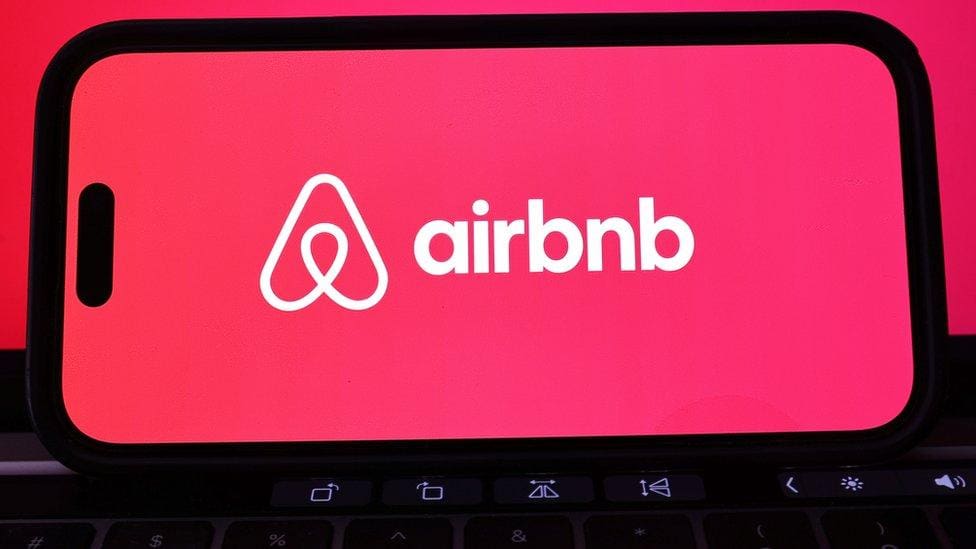Today, I want to discuss the significant risks associated with relying on large Airbnb management companies. Understanding these risks is crucial for property owners like us, and I’ll share my personal experiences to highlight these points further.
Understanding the Risks
1. Streamlined Processes Over Individual Property Success
One of the primary concerns with large property management companies is their tendency to prioritize streamlined processes over the unique needs of each property. These companies often manage anywhere from 20 to 100+ listings, leading to a more transactional approach to management. Their focus may be more on efficiency and maximizing their internal systems rather than on maximizing revenue for individual property owners.
For instance, many managers may set their calendars to require a minimum stay of five days. This decision is often made to avoid the administrative workload associated with processing 1- to 2-day bookings. While this approach simplifies their operations and can enhance their internal workflow, it significantly limits your property’s exposure and potential revenue, especially during peak seasons. Guests looking for last-minute bookings often find themselves unable to book your property due to the rigid minimum stay requirements. This lack of flexibility can result in lost opportunities, ultimately affecting your bottom line.
Moreover, when managers are juggling numerous listings, there’s a risk that your property could fall through the cracks. If they are not proactively managing each listing’s unique attributes and market potential, you may miss out on valuable revenue opportunities. Their approach to management may focus on filling as many rooms as possible, rather than optimizing each property’s unique potential for earning.
2. Lack of Individual Attention
Alongside the issue of streamlined processes, large management companies often cannot provide the individualized attention each property deserves. When managing multiple listings, it can be challenging for any manager to dedicate sufficient time and resources to ensure each property is well-maintained, marketed effectively, and kept up to date with market trends.
This lack of individual attention can lead to lower owner satisfaction and negative reviews from guests. If a property manager fails to address issues promptly or doesn’t tailor marketing strategies to highlight each property’s unique features, it can lead to a decline in your property’s visibility on the platform. In the competitive world of short-term rentals, where guest expectations are high, such oversights can result in a damaging impact on occupancy rates and guest experiences.
3. The Power of OTAs
Another significant risk is that some hosts may not list your property on all available platforms. Many property managers simply do not have the capacity to manage every platform for every property in their portfolio. While they may be able to automate 95% of the processes, listings still require consistent work on removing sales objections, understanding the sales funnel, and continuously refining their strategies. There’s only so much one person or a small team can handle, which can result in missed opportunities for exposure on valuable OTAs.
There’s only so much one person or a small team can handle, which can result in missed opportunities for exposure on valuable OTAs. If you want to improve visibility and conversion, it’s worth understanding Airbnb booking conversion rates and how to improve your visibility in the algorithm. These insights highlight how even small management oversights can directly impact both bookings and revenue.
A notable example of this risk occurred with a manager overseeing over 100 properties. This manager faced a sudden shutdown from Airbnb, resulting in a complete loss of bookings across all properties he managed. The cause of this shutdown was not just related to his individual properties, but rather stemmed from a high rejection rate of guest inquiries across the board. Airbnb evaluates a host’s performance based on overall guest interaction metrics, meaning that even one poorly managed property can negatively impact all listings under that manager.
While this manager took to social media to express his frustrations with Airbnb, his focus seemed misplaced. Instead of having contingency plans in place—such as ensuring listings were on multiple platforms—he found himself in a desperate situation. After the cancellations, he should have reached out to every guest who had booked and offered them the option to rebook directly through his website at a cheaper rate. By prioritizing direct bookings, he could have not only provided a solution for those affected but also bypassed the significant fees associated with OTAs like Airbnb, which can take up to 16.5% from each booking. However, it’s essential to emphasize that this approach should only be considered in emergencies like these, and one should never circumvent the OTAs. If a booking comes from a platform like Airbnb, it should remain there to ensure compliance with their policies and maintain a good standing as a host.
This situation highlights a common misconception: that larger companies have built-in systems that protect their interests and those of their clients. In reality, when disruptions occur, it’s often the individual property owners who suffer the consequences of poor management strategies.
4. Temporary Bans Can Happen Quickly
It’s important to understand how easily a host can receive a temporary ban from a platform like Airbnb. Various factors can trigger this, such as a guest flagging an issue on any property, frequent cancellations, or rejecting too many inquiries. Airbnb looks at the overall rejection rate for a host, meaning that if a manager is turning down inquiries for multiple properties, this can lead to a ban that affects all listings, not just one.
In my experience, when I first enlisted the help of a professional host to manage my property, I encountered these risks firsthand during one of the busiest times of the year. The manager’s oversight of a large number of listings led to a ban from Airbnb, which resulted in a complete blockage of all her calendars, including mine. Although she had been rejecting bookings across various properties, the temporary ban from Airbnb severely limited our revenue potential.
This situation was compounded by the fact that the manager had already restricted our exposure on all the OTAs due to her inability to handle the workload. As a result, our revenue was significantly affected because, despite the availability of other channels, Airbnb is often the largest platform in most areas. If Airbnb is shut down for a host, it may drastically reduce booking opportunities on other platforms, leaving property owners in a precarious position.
The Importance of Diversification
To mitigate these risks, diversifying your listings across multiple platforms is essential. By spreading your property across various sites, you ensure that you have revenue opportunities available even if one platform encounters issues. This strategy not only protects your investment but also enhances your overall income potential.
Utilizing multiple platforms also increases your property’s visibility. Different OTAs attract different demographics, allowing you to tap into a broader audience and boost your booking potential. A diversified approach ensures that your property is consistently marketed to a wide range of potential guests, enhancing your chances for success.
In addition, consider working with a management company that emphasizes a tailored approach to each property. Look for firms that can demonstrate a history of successfully managing listings on multiple platforms and have strategies in place to maintain high occupancy rates, even in the face of potential challenges.
While larger management companies may initially seem appealing due to their scale, they often come with significant risks that can jeopardize both your revenue and owner experience. It’s essential to weigh these potential pitfalls and recognize the value of maintaining control over your property management.
By actively managing your listings and diversifying across multiple platforms, you can better protect your investment and maximize your revenue potential. I hope these insights help you navigate your property management strategies more effectively and avoid the common pitfalls that can arise when relying on larger hosts.




